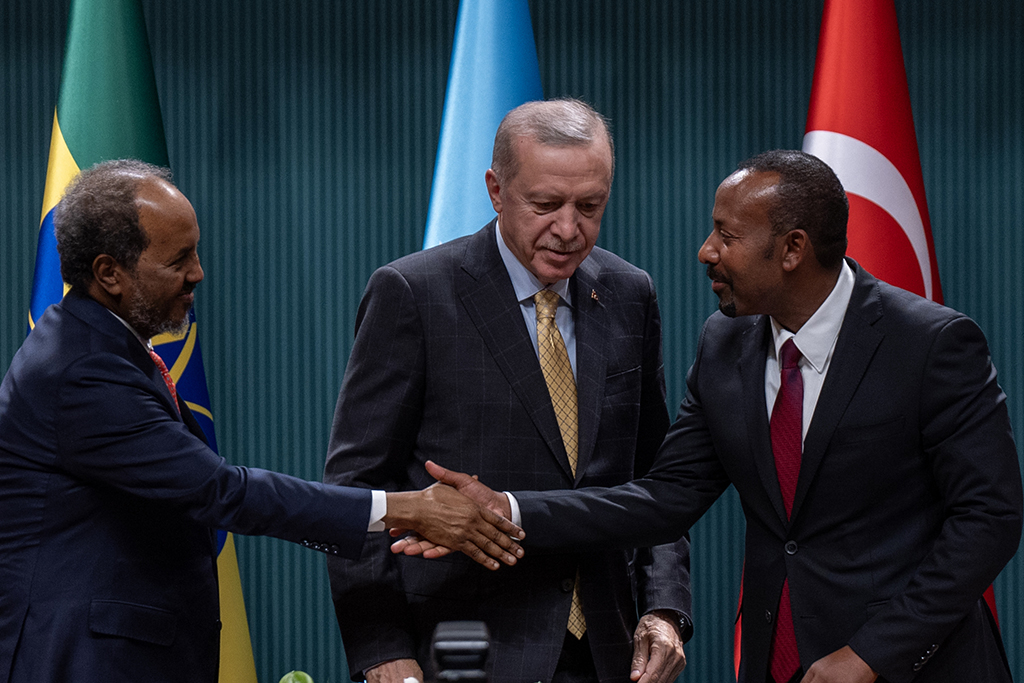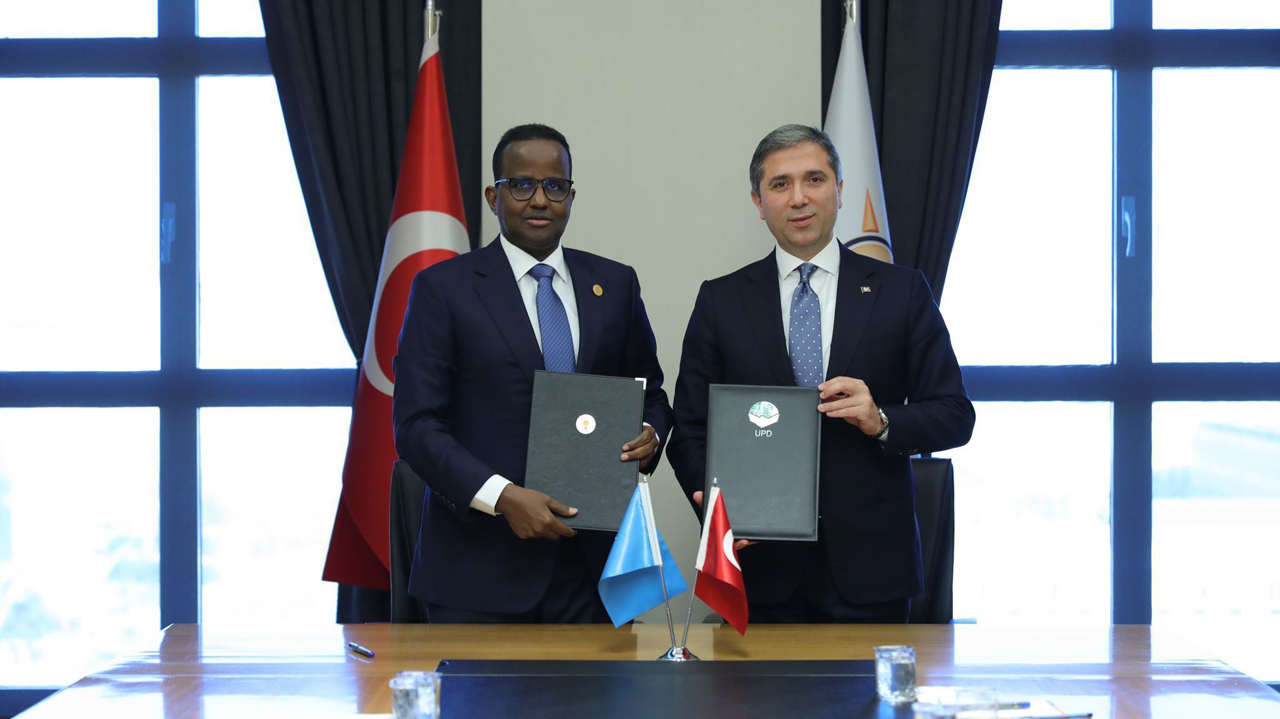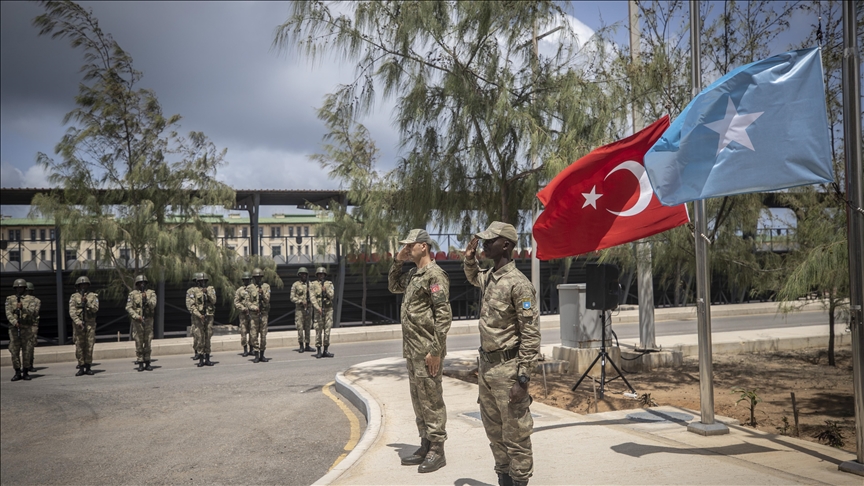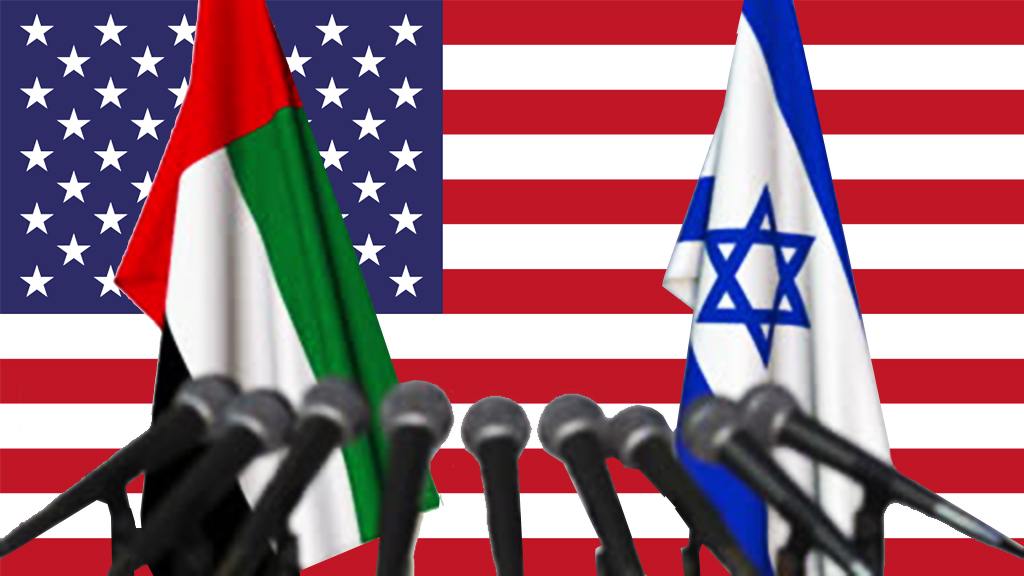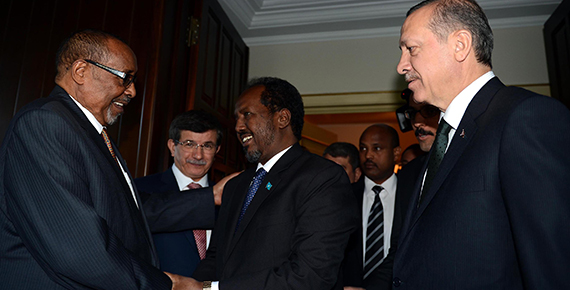On Dec. 11, President Recep Tayyip Erdoğan brought Somali President Hassan Sheikh Mohamud and Ethiopian Prime Minister Abiy Ahmed to the negotiation table for the first time in a year. They engaged in a seven-hour summit diplomacy and later announced that a yearlong crisis in the Horn of Africa had been resolved.
The crisis began almost a year ago on Jan. 1, 2024, with the signing of a Memorandum of Understanding (MoU) between Ethiopia and Somaliland. Ethiopian Prime Minister Ahmed signed the MoU with Somaliland’s former leader Musa Bihi, who is a federal member of Somalia, bypassing the Somali federal government. This act escalated regional tensions as the MoU directly undermined Somalia's territorial integrity, sovereignty, and independence. Somalia, an internationally recognized sovereign state, responded strongly, leading to a complete breakdown in communication with Ethiopia and escalating tensions.
However, on July 2, 2024, Türkiye initiated the Ankara Process, where Turkish Foreign Minister Hakan Fidan brought together Ethiopian and Somali foreign ministers. The second meeting of the process took place in August when Fidan and his delegation held talks with Prime Minister Ahmed in Ethiopia. In September, Fidan separately engaged with the parties on the sidelines of the U.N. General Assembly at the Turkish House in New York. The continuation of dialogue and communication between the two parties was critical to preventing a conflict in the Horn of Africa. Indeed, the intensive diplomatic efforts under the Ankara Process have been instrumental in resolving the crisis.
Key Takeaways from the Declaration
The Somalia-Ethiopia summit hosted by President Erdoğan in Ankararesulted in a declaration, emphasizing constructive partnership opportunities for peace and cooperation. One of the most critical aspects of the declaration was Ethiopia’s affirmation of its respect for Somalia's independence, sovereignty, and territorial integrity. This announcement holds great significance for any future process. In particular, Ethiopia’s commitment to operate under international law with Somalia's knowledge and consent for its commercial access to the sea is seen as a significant gain for both countries. In addition, the reaffirmation of principles, enshrined in the U.N. Charter and the Constitutive Act of the African Union provides additional assurances. Respecting Somalia’s sovereignty while addressing Ethiopia’s need for commercial access to the sea fosters opportunities for regional integration and cooperation.
Another key issue pertains to the fate of the MoU. In that context, the declaration’s statement, confirming that “They agreed, within a spirit of friendship and mutual respect, to forgo and leave behind differences and contentious issues and forge ahead in a cooperative manner to pursue shared prosperity,” provides significant clues. Although not explicitly mentioned, the text implies that the MoU has been invalidated, with the disputes and disagreements set aside and forgotten, focusing instead on the future. In short, future arrangements concerning Ethiopia's commercial sea access will be under the sovereign authority of the Somali Federal Government. While the Ankara Declaration does not explicitly mention the MoU, it indicates that the agreement causing the dispute between Somalia and Ethiopia has been rendered invalid.
An important development in this process was the Somaliland elections on Nov. 13, 2024. Abdirahman Mohamed Abdullahi's (Cirro) victory in the elections is considered significant for regional balance. Furthermore, Cirro’s approach to the issue suggests he will not support the MoU. This development holds promise for peace, stability, and prosperity in the region, offering potential benefits not only for Somalia and Ethiopia but for the broader Horn of Africa as well. Additionally, these developments may provide opportunities to enhance cooperation against existing regional security risks, such as terrorism threats posed by al-Shabaab and Deash (ISIS), which could have negative implications for the global order.
It is also crucial to recall the “Framework Agreement on Defense and Economic Cooperation” signed and ratified between Türkiye and Somalia on Feb. 8, 2024. Through this process, Somalia secured a comprehensive defense and economic cooperation agreement with Ankara. The defense aspect of this agreement provides security assurance for Somalia, while the economic dimension offers significant contributions, exemplified by the ongoing seismic research activities by the Oruç Reis in Somali waters. Furthermore, the economic dimension of this agreement has the potential to deepen with future synergies arising from Somalia-Ethiopia relations.
Thus, the pursuit of cooperation instead of crisis and conflict will yield economic benefits, not only for both countries but also for the region. At the same time, reducing regional political tensions has become even more critical. The potential mutual economic dependencies between Somalia and Ethiopia could create a zone of prosperity in the Horn of Africa. This scenario represents a significant opportunity for peace, stability, and security in the region. Moreover, the cooperative framework is vital for addressing the increasing threats from terrorism, the security risks in the Red Sea posed by Houthis in Yemen, and threats posed by Israel on its southern front.
Türkiye as Address for Peace
The success of the Ankara Process is entirely Türkiye’s success. The diplomatic achievement under President Erdoğan’s leadership represents a concrete gain for regional peace. The Process, developed under Erdoğan's leadership, has not only resolved the tension between Somalia and Ethiopia but has also strengthened Ankara’s role as a mediator and stabilizer in Africa. This process highlights the multidimensional and inclusive approach of Türkiye’s Africa policy.
Its role in mediating between Russia and Ukraine, facilitating prisoner exchanges, resolving the decadeslong Armenian occupation of Karabakh, addressing conflicts in Libya, as well as its principled and humanitarian approach in Syria underscore its importance as an actor contributing to peace in foreign policy. Similarly, the success of negotiations between Somalia and Ethiopia within the Ankara Process further solidifies Türkiye’s diplomatic effectiveness and contribution to regional peace. The capacity, deep tradition, expertise, and experience of Turkish diplomacy in addressing global crises have positioned the country as a reliable mediator and solution-oriented actor on the international stage. This role, combined with the strategic vision and rich history of Turkish diplomacy, facilitates Türkiye's recognition as a crucial partner in resolving global issues.
Lastly, President Erdoğan’s recognition as one of the most experienced leaders in global politics, with an approach that prioritizes international law, peace, stability, and rational solutions, reinforces trust in the existing order.
Under Erdoğan’s leadership, Türkiye will continue to enhance its credibility and influence, consolidating its image as a reliable actor, – not just in Somalia and Ethiopia, but across the region in Africa and in global politics.

